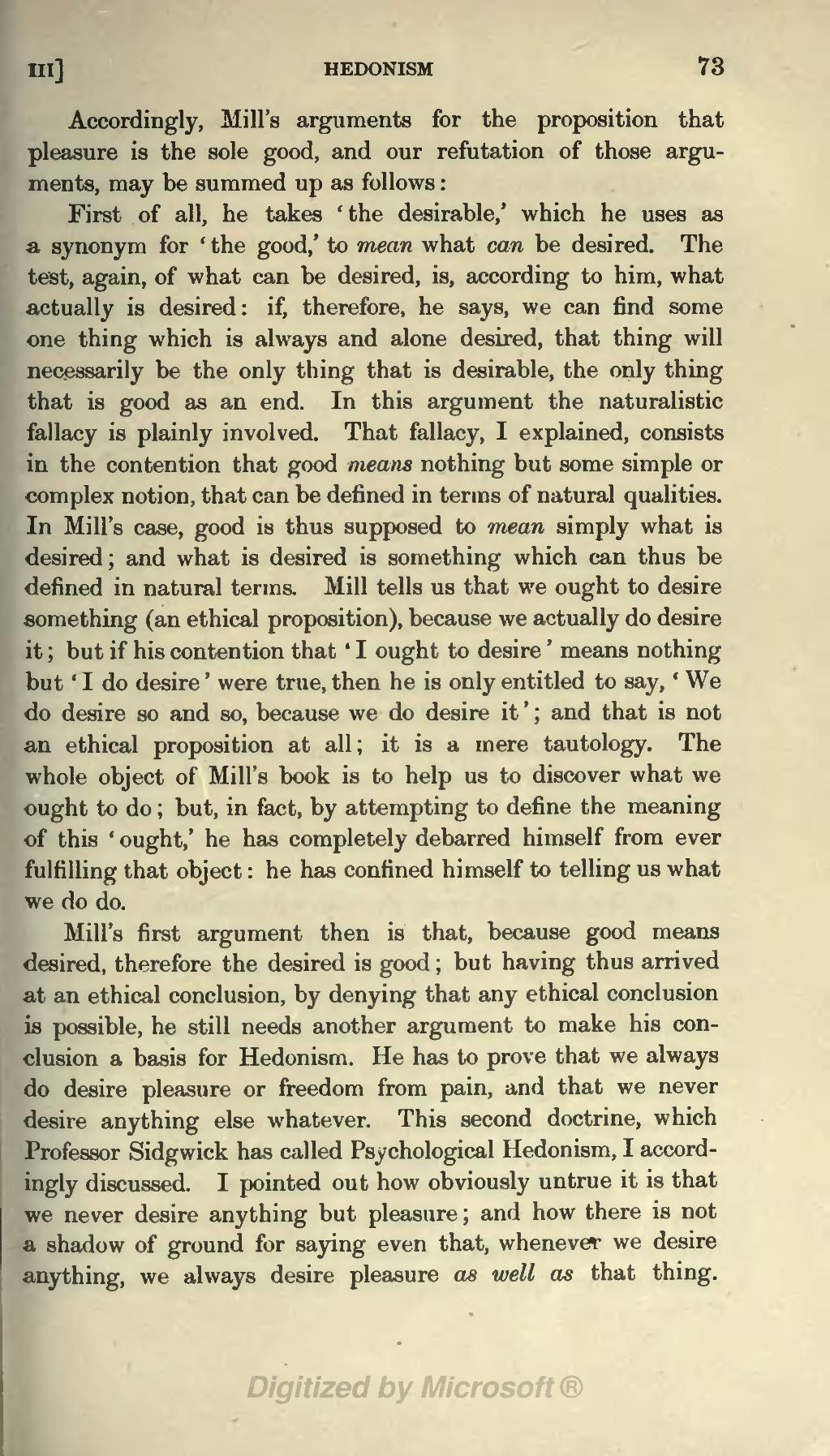Accordingly, Mill’s arguments for the proposition that pleasure is the sole good, and our refutation of those arguments, may be summed up as follows:
First of all, he takes ‘the desirable,’ which he uses as a synonym for ‘the good,’ to mean what can be desired. The test, again, of what can be desired, is, according to him, what actually is desired: if, therefore, he says, we can find some one thing which is always and alone desired, that thing will necessarily be the only thing that is desirable, the only thing that is good as an end. In this argument the naturalistic fallacy is plainly involved. That fallacy, I explained, consists in the contention that good means nothing but some simple or complex notion, that can be defined in terms of natural qualities. In Mill’s case, good is thus supposed to mean simply what is desired; and what is desired is something which can thus be defined in natural terms. Mill tells us that we ought to desire something (an ethical proposition), because we actually do desire it; but if his contention that ‘I ought to desire’ means nothing but ‘I do desire’ were true, then he is only entitled to say, ‘We do desire so and so, because we do desire it’; and that is not an ethical proposition at all; it is a mere tautology. The whole object of Mill’s book is to help us to discover what we ought to do; but in fact, by attempting to define the meaning of this ‘ought,’ he has completely debarred himself from ever fulfilling that object: he has confined himself to telling us what we do do.
Mill’s first argument then is that, because good means desired, therefore the desired is good; but having thus arrived at an ethical conclusion, by denying that any ethical conclusion is possible, he still needs another argument to make his conclusion a basis for Hedonism. He has to prove that we always do desire pleasure or freedom from pain, and that we never desire anything else whatever. This second doctrine, which Professor Sidgwick has called Psychological Hedonism, I accordingly discussed. I pointed out how obviously untrue it is that we never desire anything but pleasure; and how there is not a shadow of ground for saying even that, whenever we desire anything, we always desire pleasure as well as that thing.
